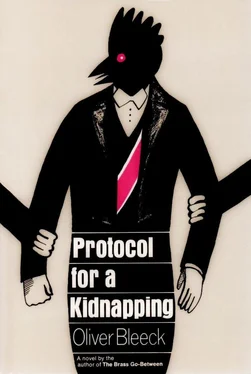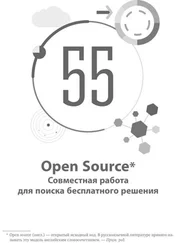“You’ve been here a long time, I understand,” I said.
“Since forty-eight,” he said. “It was as soon as I could get back in. We got married then.”
“Have you been back to the States since?”
“No, but I got a kid over there now, my oldest boy. He’s going to Brown on a scholarship.” He paused to drain his slivovica in a quick gulp. “Tavro told you about me being with the Partisans, didn’t he?”
“He mentioned it.”
“They parachuted me in. September of forty-four.”
“OSS?”
His eyes narrowed slightly, some, but not much. “Yeah, OSS. I was a radio man, but the radio got busted in the drop so they handed me a machine gun instead. That’s what I did until it was over. I met Roza here Christmas Day, 1944.” His wife brightened and smiled at the sound of her name. She sat in a straight-backed chair, her feet barely touching the floor, and sipped her coffee and plum brandy, politely following the conversation with her eyes, if not with her ears.
“Where’d you know Tavro?” I said.
“ U šume — in the woods,” Jones said. “He was Rankovic’s dog robber. We got to know each other pretty well and we’ve kept in touch over the years. We’ve gone hunting some together. He was with me when I got that wolf up there.”
“He told you I’m getting him out,” I said.
Jones gave me a long, level stare before he replied. “He told me that you were going to try.”
“He says he’s afraid of being killed.”
Once again Jones was silent before he made his comment, as if he had only so many phrases to spend and he didn’t want to part with any of them carelessly. “He’s a Serb,” he said finally.
“What’s that mean?”
Jones turned his heavy head toward his wife and spoke to her in Serbo-Croatian. She smiled, nodded, gathered up our glasses and cups on the tray, and headed toward the rear of the house. The cat jumped off Jones’s lap and followed her, its tail a moving exclamation mark. “She’s a Serb, too,” Jones said. “If I asked her how were things in town today, she might say fine, and let it go at that, or she might take the rest of the afternoon to tell me, part of the time laughing about what happened and part of the time crying, even if she did no more than buy some thread. But if she’s in the mood, she can make buying a spool of thread a hell of an adventure that’s full of all sorts of meaning. If she’s in the mood and most of the time, being a Serb, she is. Tavro’s like that.”
“You mean he’s not in any danger?”
“I mean he’s a Serb and if he thinks he’s in danger of being killed, he likes to talk about it. But that doesn’t mean he isn’t. I think he is, but then I’m just a construction worker.”
“Why?”
“You mean why do I think he’s in danger?”
“That’s right.”
“You follow the politics here closely?”
“Some.”
“You remember in sixty-six when they were talking about a public trial for Rankovic?”
“Yes.”
“But nothing came of it?”
“Yes.”
“You know why?”
“Not really.”
“Well, one, it would be like putting the American Secretary of State on trial. What’s his name — uh—”
“Rogers.”
“Rogers, yeah. I keep thinking Rusk, but it’s Rogers now. But it would be like putting Rusk or Rogers on trial for treason. That’s one. Now suppose Rusk or Rogers was not only Secretary of State, but also head of the FBI and the CIA combined. What if he was that?”
“I thought Rankovic was vice-president.”
“He was, but what the hell does an American vice-president do?”
“You’re right.”
“So what if it was like I said?”
“It would scare Congress silly,” I said.
“Especially if it was brought out that the Secretary of State had bugged not only the White House, but also the offices and homes of the entire cabinet and had it fixed up so that he could listen in on all their phone calls from his own bedroom.”
“Is that what the setup was?”
“The big shots live out in a fancy Belgrade suburb called Dedinje. Rankovic lived at twenty-five Uzicka Street. The telephone system was rigged so that he was tapped into any house that had a lower number than his. Tito’s address is fifteen Uzicka. Hell, there was even a tap on the phone in Tito’s bedroom. It was all in the papers. So they kicked Rankovic out of the party, fired him as vice-president and head of the UDBA, but refused to give him a public trial. Guess why?”
“He might embarrass somebody.”
“Enough to fill a graveyard. Everything they accused Rankovic of doing, they’d done, too, and that means kickbacks, importing cars tax free and then selling them, letting the government pay for their fancy villas, operating private gambling joints, even using convict labor. You name it. Rankovic had the goods on them and when he wasn’t monitoring those phones, guess who was?”
“Tavro,” I said.
“That’s right.”
“And he know all the dirt.”
“Most of it anyway.”
“So somebody’s scared that he’ll talk.”
“They should be.”
“But it all happened in 1966,” I said.
Jones took his time to remove a cigarette from a leather case. He looked at it, rolled it in his fingers, and then lit it with a match. “Tito was born in 1892,” he said. “How much longer you give him?”
“I see what you mean.”
“It’s a nice job,” Jones said, “and a lot of people want it. Now if you thought you might be in line for it, and there was somebody around who might know something that would embarrass you, you might just make a wish that this person would disappear.”
And if a certain government had this information, I thought, and used it discreetly and wisely, it could help determine who would, or would not, head the pecking order in Yugoslavia once its uncontested leader was no longer Josip Broz Tito. Of course, things would fell apart if this same information were to be prematurely spread across the front page of a large American newspaper that just happened to be owned by the U.S. ambassador to Yugoslavia. If that danger threatened, you just might do something to prevent it. You might even kidnap your own ambassador.
I suddenly realized that Jones was looking at me expectantly. “I said do you want another drink?” he said.
“No thanks.”
“I’ll get word to Tavro.”
I rose. “Any idea of where I can get a cab?”
He shook his head. “Not much chance around here and I haven’t got a phone. I’ll walk you to the bus.”
I smiled and said good-bye to Mrs. Jones as her husband slipped into a heavy gray overcoat. He said something to her in Serbo-Croatian and she nodded and smiled at me and said, “Good-bye.” It may have been the only English she knew.
“You ever think of going back to the States?” I said as we walked down the narrow street.
“Not much,” Jones said. “She has her family here and I don’t have anyone but a brother, so it doesn’t make much sense. But it was rough at first.”
“How do you mean?”
“They didn’t know what to make of me. They must have had me followed for two years. There was a hell of a mess about work permits and so on. I’m just lucky that I own half a farm in Nebraska or we might have starved. My brother sent me my share. Finally, Tavro got Rankovic to put a stop to it. They just think I’m the nutty American now.”
“You like it here, huh?”
He smiled at me. It was a curious smile, tinged with a kind of sad pride. “I like my wife and you can’t beat the fishing,” he said. “But it wasn’t all my idea.”
We crossed the street and turned left. “Whose was it?”
“You can catch the bus here,” he said. “It’ll take you to the Trg Republike and you can catch a cab or walk from there.”
Читать дальше












